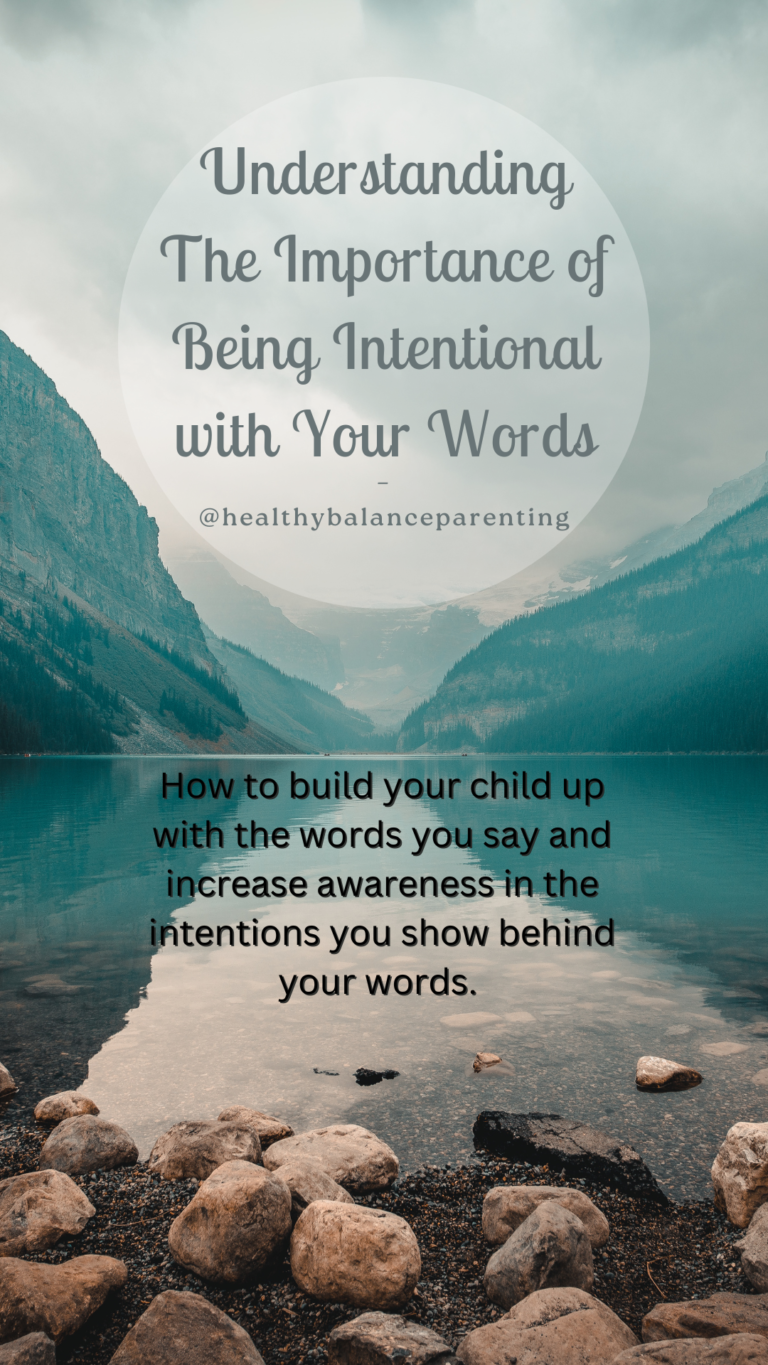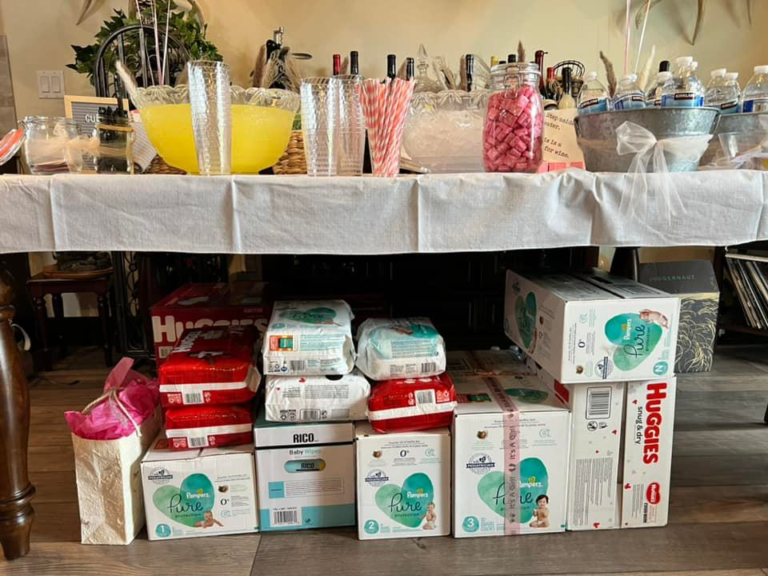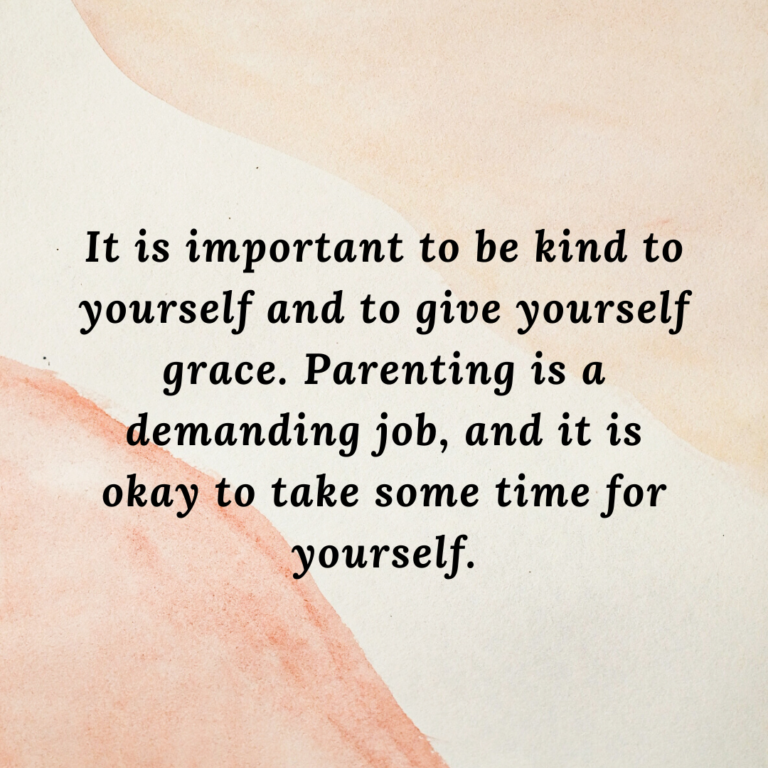Understanding The Importance of Being Intentional with Your Words

Using Positive Communication with your Children: Recognizing the Power of the Words you Use
Because we interact with people so many times throughout the day, we often take our ability to communicate for granted. But when it comes to our children, the words we choose and how we use them can have an immense impact on their upbringing. This is why we made it a priority to discuss and strategize how we would like to communicate with our kids. Below are some of the ideas that we try and implement when talking to and around our twins.
Consistency is Key
Consistency is a word frequently used when talking about parenting, especially when it comes to routine. A quick search about baby sleep habits will yield article after article about the importance of establishing consistent nap and bedtime routines. Like all other aspects of parenting, being 100% consistent with how you communicate with your kids is impossible, but it is important to us to make an effort, nonetheless. Now we obviously aren’t saying that we use the same exact words every day, but that we try to say what we mean and follow through with what we say.
For example, if we decide to make a rule, such as no standing on the couch, it is important to us that we stay consistent with that rule. But at the same time if we say we will go to the park after work, it is equally as important to follow through with our promises. Our theory behind this is that if we expect our children to listen to what we have to say, it is only fair that they should be able to expect us to do the same. Because of this, we try to think more intently about what we say.
Give Specific Praise
One of the best aspects of parenting is watching in wonder as your children grow and discover new things, but we can take for granted just how amazing their ability to learn is. When kids get a good grade on a test or hit a baseball, we tend to celebrate their successes with generic praises like “you are so smart” or “great job”, but often don’t recognize the entire process.
It’s easy to forget that children don’t understand the complexities of language like we as adults do. When you tell a coworker “Great job on that project,” they understand that you are complimenting them on the culmination of their work. A child does not have this ability yet and it is our job as parents to teach them. When we only give them simple words of affirmation, we are celebrating their achievements but not the work it took to get there. This not only fails to help them recognize and understand the actions they took to be successful but also teaches them to equate success with results.
For example, saying “you are so smart for getting an A on your test” does not recognize the positive aspect of the work they put in to earn the A and at the same time fosters the idea that they are only smart because of the good grade they received. In no way does this mean you should not give your children praise for their successes, merely that you should give them more specific praise. So instead of the example above, you could say “great job on getting an A on your test, I am so proud of the work you put into studying.” This still celebrates the achievement of a good grade but recognizes that the success came from the hard work put into studying. On the surface these few extra words may not seem like much but can have a large impact on how your child learns.

Intentionally Building up our Kids with Positive Affirmations
One thing that has been very important to us is to have positive affirmations. Affirmations are encouragements we repeatedly say to our kids. We tell these to the twins to help build them up and encourage confidence. This is incredibly critical in today’s world where many parts of life will try to tear children down.
To develop your own positive affirmations, think about the words and feelings you want your kids to believe about themselves. The words we choose were loved, brave, intelligent, important, and kind. Loved because we will never go a day without telling our children they are loved. Brave because we want then to take chances, try new things, and stand up for what’s right. Intelligent because we want then to think through challenges, think outside the box, and have emotional intelligence. Important because it’s important (get it) and is of the best things parents can tell their children. Kind because the world can always use some more kindness and having a kind heart will take them far. If you have older kids, this is a great opportunity to get them involved in creating their own positive affirmations.
Try to take at least one moment each day to intentionally build your kid up. If that’s using positive affirmations or just taking a moment to tell them you appreciate them. This small moment will have large results. With our kids we say it to them individually or together. It depends on the day and what we can make work. This moment means a lot to us. We found by building our kids up with positive affirmations we find we also feel built up as a result. As they grow the intent is that they will say it with us.

Every word in this is intentional!
Words Matter – Even When it Means Protecting your Children from Others’ Harmful Words
As parents we make sure our kids hear the words, I love you every single day. Unfortunately, we have personal experiences with hearing people continually say “I DO NOT love you as much as your siblings”, “If you loved me, you would (insert whatever was wanted at the time)” or “Your sibling is smarter than you” and all sorts of negative toxic things. We know how that tears a child down and has all kinds of long-term detrimental effects psychologically. It is absolutely not ok or healthy for a parent to make their love and praise conditional to their child! Be intentional with the words you choose to say to your kids. Understand the detriment that can come from the word you use.
We have made a continuous effort to ensure this is not something our kids will endure. This involves not only making sure we are building them up; we also monitor how other people in our life speak to them during interactions. This led us to limiting the time we spend with certain people. People who we unfortunately cannot trust to speak respectfully. Not only speaking kindly to us but also in the way they talk about others. The constant negative, self-deprecation, toxic, verbal abuse is a cycle that we want to end with us. We have informed people that we will not tolerate it. Our children will always be our top priority. As their parents it is our responsibility to ensure their mental and physical wellbeing.
While setting boundaries is not always an easy task, it is an important one. We have set specific boundaries to protect our children. Boundaries are important not only for us to know our children are safe but also because they allow us to stand up for the respect that we deserve. Together, we took the time to have the hard conversations and openly discuss what we felt comfortable with. This makes sure we are on the same page. We continue to check in and adjust where needed. In a perfect world, everyone would have a positive intent behind their words and actions. They would love on our kids and make their wellbeing a priority, but that’s not always the way it is. This is why communicating and being clear on boundaries, expectations, and being intentional with our own words is so important to us.
On the completely opposite side of things, we are lucky to have so many people who adore our children. People who build them up, and who we know will hold their wellbeing both physically and mentally above all. These are the people we continue to prioritize spending time with.

Setting a good example
How you interact with other people in front of your children can be just as impactful as how you speak with them directly. There are the obvious things like not using adult language, but there are also some nuanced words or phrases that we do not realize have such an effect. An example of this, in our experience is, the word “gross.” We are both relatively adventurous when it comes to food and want to instill that with our children. We feel that if our children heard us use words like gross to explain food, they will be less inclined to form their own opinions. So, we try to use more neutral and descriptive words instead.
The way we speak to each other in front of our kids is also important. By no means are we perfect at this, and we are continually working on our communication. However, it is possible to disagree and continue to have a respectful conversation. Showing our children how we speak to one another with kindness and respect even when we are upset is healthy for them to see. In our intentional words we aim to teach conflict resolution in a healthy way. We show how to stand up for our own feelings and how to express ourselves in tough situations.
Saying I’m Sorry
No one is perfect and we all have moments where we wish we would have reacted better. These moments show kids how to say you’re sorry. Words matter and too often the response we hear so “I’m sorry” is “it’s ok”. While this has become a standard reply it is not a good one. An apology is being made because something was done that is not ok. Therefore, the wrong behavior should not be validated by responding with its ok. Instead, the response should be along the lines of thank you for apologizing, or I appreciate the apology. This does not validate the bad behavior and opens up the ability to further discuss a resolution.
Not Talking Over a Child
Being intentional with words is important. Knowing when to hold your words and not talk over your child is equally important and a part of being intentional. Allow them time to form a response. It may take a while but allowing them the time encourages them and supports them in development. When one of us gets home after a workday and asks a kid what they did today we are not asking the other parent. We have to remind ourselves to not talk over the kids or direct them as to what they should say. It is important to provide your child with the space to communicate and give them the opportunity to respond. Doing this before they are fully verbal is beneficial too as it gives them space to communicate with you.
Conclusion
Are your words helpful or are they harmful? Will they build your child up or tear your child down? Are you being intentional with the words you say and the nonverbal cues you give? Does your child communicate with you? Are you a safe place they can come to?
If you do not reply yes to all of these questions, then maybe it is time to take a step back and reflect. Put in the work and do better. Kids deserve our very best. It is too easy to misconstrue or misconvey our words and actions. This is why focusing on the intention of your words is so important, especially as a parent. Taking the time to think about how you communicate with your children can help you continue to improve.
Having an arsenal of ways to better understand how you communicate and how your child/children communicate can lead to less misinterpretations. Teach children by leading the example. Show them how to engage in healthy communication, to speak up for themselves, and how to admit when they’ve messed up. This provides your child with the ability to be confident in themselves. It also shows them to stand up for the way they will be spoken to and speak to others.
Intentional communication and the awareness of being intentional with your child gives parents the ability to positively communicate with their children and recognize the power in the words they use. This is something as a parent we continually work on. Every parent will have to find their own healthy balance that works best for them and their children.

